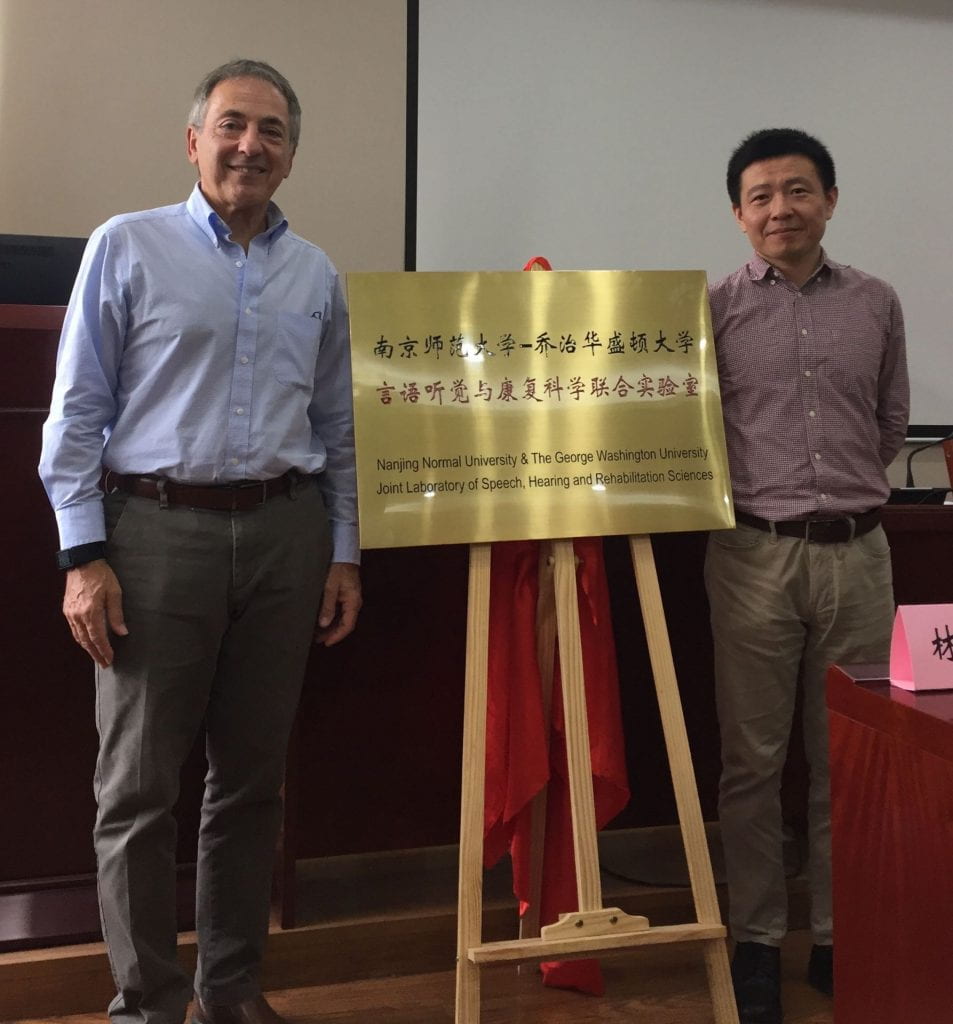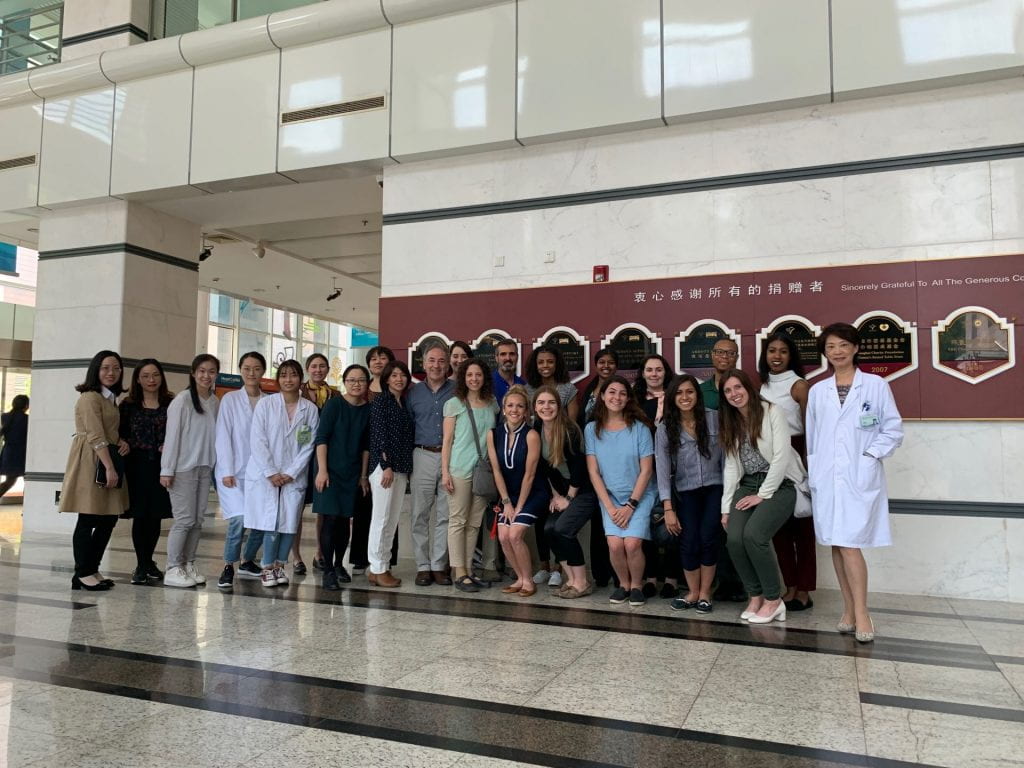SInce the Fall, 2014, Dr. Mahshie has been involved in research related to children in China who use cochlear implants. In October 2015, Dr. Mahshie and fellow GWU faculty members Prof. Michael Bamdad and Dr. Shelley Brundage traveled to China to meet with other professionals about current topics such as cochlear implantation and effective clinical training programs. In an effort to better understand speech and hearing professions in China, they presented a paper entitled “Model elements of a clinical and academic program in Speech-Language Pathology” at the Asia Pacific Society of Speech, Language, and Hearing (APSSLH). The APSSLH is dedicated to promoting the exchange of research and ideas regarding all aspects of normal and disordered communication throughout the Asia Pacific Rim. This conference allowed Dr. Mahshie and colleagues to speak with other professionals in the field about the essential components of a strong academic and clinical training program.

In addition to speaking with academics at the APSSLH, Dr. Mahshie, Prof. Bamdad, and Dr. Brundage had the opportunity to visit a hospital and two rehabilitation centers for children. They met with the director and discussed the auditory verbal therapy (AVT) that they were using to benefit the approximately 50 children with cochlear implants there.
In 2017, GW and Nanjing Normal University established a joint laboratory whose goal was the development of projects exploring communication disorders in both China and the US. While the lab has been less active since the onset of COVID, a number of papers have resulted from this collaboration along with an ongoing project examining communication patterns of children with cochlear implants.
In 2019, Dr. Mahshie, Professor Laura Barrett, and Michael Bamdad brought a group of students to China to explore the profession of speech-language pathology in China. The trip involved travel to Beijing, Nanjing, and Shanghai where we visited a number of centers providing speech pathology services to children and adults. The trip provided students and instructors with a broad view of the profession in China.


